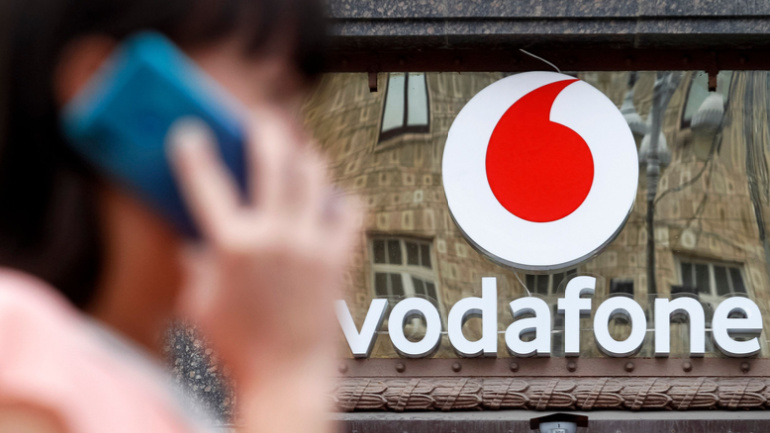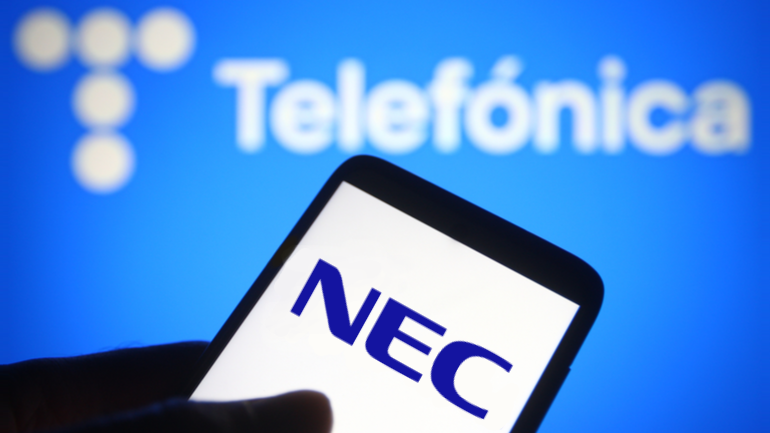Vodafone’s new CEO unveils a strategic plan targeting financial revitalization, including cutting 12% of its global workforce to streamline operations. Amid disappointing earnings and stagnant growth, can the company regain competitiveness with this bold approach?
IBM and Telefónica Argentina (Movistar) have announced a live, fully operational Open RAN network that will act as a proof of concept (PoC) for the delivery of commercial mobile services to the city of Puerto Madryn, Argentina, covering 81,000 urban residents. The launch allows for the testing of live, commercial traffic and provides an early proof point for the technology as it continues to develop. IBM has led the system integration process, assembling components and systems from a number of software and hardware vendors, including Altiostar, Red Hat, Quanta, Gigatera and Kontron, from pre-integration all the way through to full deployment. Open RAN is a state-of-the-art radio access network technology that enables interoperability for transforming a radio network into an open cloud environment in which multiple vendors can participate to create a better and more efficient service network. When using Open RAN, operators can combine hardware and software…
Deutsche Telekom will move 18 million users to the cloud Deutsche Telekom has announced that 18 million of its fixed voice customers will soon have their services moved to a new cloud-based telephony platform. The company currently has a next-generation IP multimedia subsystem (NIMS) deployed in telco’s data centers throughout Germany. The platform promises to deliver services faster and more efficiently by automatically allocating voice capacity on the network as needed. The deployment of cloud telephony is a logical next step in Deutsche Telekom’s all-IP strategy, which the company has been pursuing for years. Read more at: https://tinyurl.com/y3oxa9wq ClearlyIP releases a new mobile softphone Telecommunications company ClearlyIP has released “Clearly Anywhere”, a mobile softphone that provides easy mobile integration into FreePBX-based systems. This application is designed for Android and iOS devices, allowing system administrators to quickly set up, configure, and deploy cross functional software that clients closely incorporate with an…
Australia to invest a record A$1.35bn in cybersecurity The Australian government has announced an AUS USD 1.35 billion program to combat the rise in cybersecurity threats that have intensified in recent months. This initiative, named the Cyber Enhanced Situational Awareness and Response (CESAR) package, will seek to identify more threats, fight foreign cybercriminals and build stronger partnerships within the industry. The nation’s largest ever investment in cybersecurity will supercharge the Australian Signals Directorate (ASD) and the Australian Cyber Security Centre. Prime Minister Scott Morrison said, “My government’s record investment in our nation’s cyber security will help ensure we have the tools and capabilities we need to fight back and keep Australians safe.” Read more at https://tinyurl.com/ya8q3xsl India has banned TikTok, WeChat, and other China-based apps The Indian government has banned 59 Chinese-made apps, including TikTok and WeChat, over concerns that “they are engaged in activities which are prejudicial to sovereignty…
Vodafone has achieved a world first: a non-terrestrial video call using an unmodified 4G/5G smartphone via AST SpaceMobile’s BlueBird satellites. This milestone highlights the fusion of satellite and cellular networks, extending coverage to remote areas.
Virgin Media O2 extends its RAN deal with Nokia, enhancing 4G and 5G coverage in the UK, while exploring potential 5G cloud RAN pilots. This partnership diversifies vendors and supports the nation’s digital transformation.
Verizon drives towards its goal of net zero carbon emissions Verizon has used the proceeds from its most recent $1 billion green bond to sign a number of renewable energy purchase agreements (REPAs) in an effort to make its operations more ecologically friendly. These REPAs encompass around 910 megawatts of new renewable energy producing capacity throughout seven states in the USA, with wind turbines accounting for around 51% and solar panels for the remaining 49%. By 2025, the operator claims it will have sourced or generated renewable energy equal to 50% of its annual electricity use. Read more at: https://tinyurl.com/4fzb629n Broadvoice to officially launch GoContact BPO offering At the Call & Contact Center Expo US, Broadvoice, a supplier of hosted voice, unified communications (UC) and SIP Trunking services for businesses, will demonstrate its new contact center solution for the business process outsourcing (BPO) sector. This new offering is the result…
Telefónica and NEC Corporation announced an agreement to undertake pre-commercial Open Radio Access Network (Open RAN) tests in Telefonica’s four key worldwide markets: Spain, Germany, the United Kingdom and Brazil. This is a step toward Telefonica’s goal of achieving a 50% expansion of their current radio network based on Open RAN by 2025. According to a joint press release, Telefonica will perform open RAN trials in Spain, Germany, the United Kingdom and Brazil, with the objective of offering commercial alternatives to at least 800 locations across the four countries beginning in 2022. Under the terms of the agreement, NEC will serve as the primary system integrator for the implementation and testing of multi-vendor Open RAN solutions with the Telefonica group’s operational businesses. Telefónica and NEC will also cooperate with the newly formed Telefónica Technology and Automation Lab in Madrid to validate and implement cutting-edge Open RAN technologies and…
BT, the UK’s largest telecoms and network provider, has launched hollow core fiber trials at the BT Labs in Adastral Park, Ipswich, in a joint venture with Lumenisity, the University of Southampton’s spin-off company and Mavenir, the Open Radio Access Network (O- RAN) mobile carrier. The research is being carried out at BT’s research and engineering facilities, with the researchers using a 10-kilometer-long hollow-core fiber cable made by Lumenisity. This state-of-the-art network cable has a hollow, air-filled center that extends through the entirety of the cable. The hollow core fiber will be tested for a myriad of applications, such as the possible benefits to 5G networks and highly secure communications such as Quantum Key Distribution (QKD). Reducing the latency of hollow fiber light could provide immense benefits, including high-frequency trading and reduced mobile network costs. This joint venture has revealed that the usage of hollow core fiber can…
SoftBank aims at providing connectivity from space SoftBank has announced that it will begin promoting the roll out of Non-Terrestrial Network (NTN) solutions that provide connectivity from space and the stratosphere. SoftBank NTN solutions will include the Geosynchronous Earth Orbiting (GEO) satellite NarrowBand IoT (NB-IoT) services provided by Skylo Technologies. The two companies recently agreed to cooperate in offering satellite services in Japan. SoftBank’s NTN portfolio of solutions will also include Low Earth Orbit (LEO) satellite communications provided by OneWeb, and High Altitude Platform Station (HAPS) stratospheric telecommunications platforms provided by SoftBank’s subsidiary HAPSMobile. Read more at: https://tinyurl.com/murtvfhr Black Lotus Labs uncovers hacktivist campaign Black Lotus Labs, the Lumen Technologies security threat intelligence division, has presented evidence that hacktivists have recently attacked switches and routers in a minimum of 100 organizations. The hacktivists managed to access those Internet-connected devices because of an incorrect Cisco Systems Smart Install configuration. The Black…













